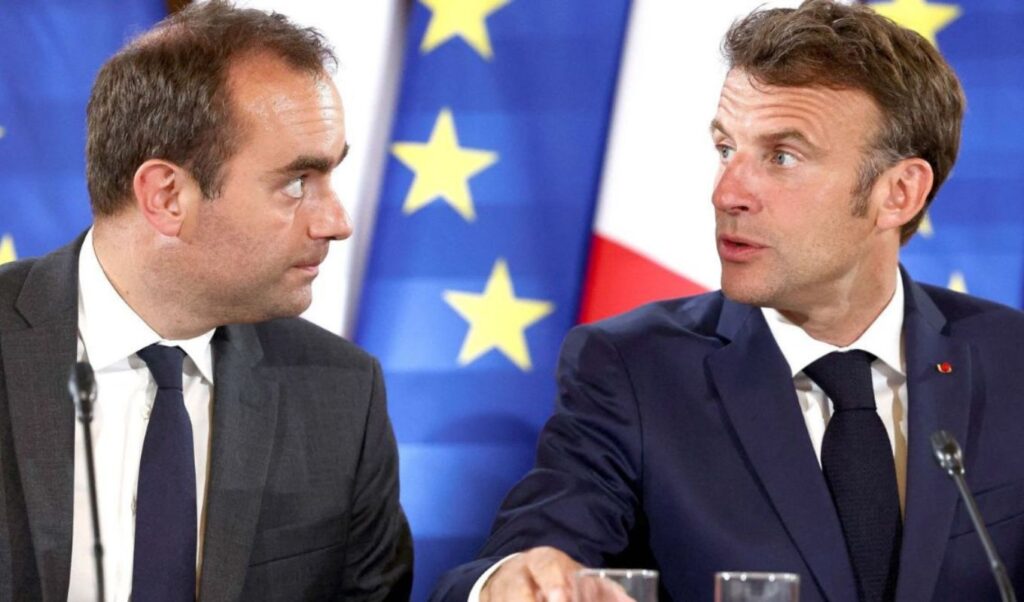Just 26 days. That’s exactly how long, not a day more, the latest French government lasted under Sébastien Lecornu, who is expected to go down in history as one of the politicians with the shortest prime ministerial tenures in the EU. The brief journey of the 39-year-old politician, who was appointed after the fall of François Bayrou’s government, with the budget vote bringing down the latter, is one of two major issues causing cracks at the Élysée Palace. The political chaos into which France appears to have plunged, with Lecornu, Bayrou, and Michel Barnier – who was removed from office last December – all falling, demonstrates a troubling lack of consensus in the French National Assembly and the climate of polarization that has overshadowed every attempt to formulate an effective plan against economic decline. Beyond the critical domestic issues France faces, the other significant concern relates to the EU, specifically how France, one of the bloc’s largest economies, will operate under political and economic pressure in European circles and how it will respond to geopolitical challenges that require a unified image from the EU.
Sébastien Lecornu: the timeline of resignation
Lecornu resigned one day after presenting his cabinet, which remained largely unchanged from Bayrou’s and thus faced fierce criticism from all parties in the National Assembly.
French media reported earlier that the French president is not expected to make a statement, at least during the day, leaving open questions about his next move to overcome the deadlock.
Macron’s next moves are anxiously awaited as he received another blow while Marine Le Pen’s side intensifies pressure for early elections.
As scenarios form about Macron’s political future, what is certain – as French media emphasize – is that Lecornu won the unofficial title of French politician with the shortest prime ministerial tenure since Bayrou’s departure. The previous “record” was held by Michel Barnier with just three months in the prime ministerial office.
The 39-year-old Lecornu was Macron’s fifth prime minister since the latter’s re-election in 2022, while he faced the difficult task of passing a budget to control France’s fiscal deficit.
The negative climate in the markets
Financial markets reacted negatively to news of Lecornu’s resignation, amid growing fears that Paris is unable to implement the billions of euros in budget cuts required to overcome the debt crisis, with governments collapsing like dominoes because they cannot push through reforms.
Most worryingly, the euro itself fell by more than half a cent against the dollar, in one of the rare instances where domestic political turmoil has effects beyond France’s borders.
Meanwhile, concern runs deep across the rest of Europe, which must face geopolitical challenges with two wars raging in the Middle East and Ukraine, and an unpredictable American president facing them.
Lecornu’s mistakes
Before assessing the next steps, among the mistakes of the resigned French prime minister was that the ministers he appointed showed no intention – according to French media – of substantial change aimed at opening the path to agreement with other parties. The most important portfolios did not change hands.
It’s also noted that Lecornu failed to convince the center-left Socialist Party, which would likely have helped pave the way for successful budget negotiations.
The troubling aspect is that France’s political crisis is not easing but deepening, with many comparing Lecornu’s resignation to that of then-President Charles de Gaulle in 1969.




